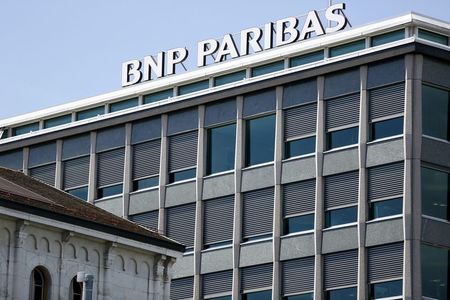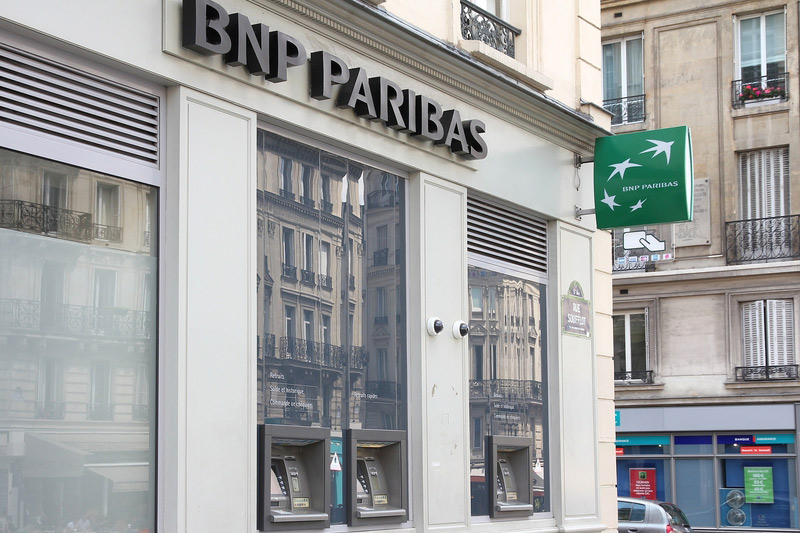By Karen Freifeld and Edward Krudy NEW YORK (Reuters) - U.S. authorities' $8.9 billion settlement last month with French bank BNP Paribas for sanctions busting will pay for New York cops to get live computer feeds of street crime and for new carpets in the offices of prosecutors, among many other things.
In the past few months, American regulators and prosecutors have forced some of the world's largest banks to pay massive fines for everything from breaching U.S. sanctions to alleged mortgage abuse and illegal tax schemes.
Now the question is what the U.S. is going to do with all the cash. In some places – particularly New York state – that is leading to ugly wrangling over how to spend it.
Some of the $18.5 billion in penalties U.S. authorities have levied on banks since May was already earmarked in settlement papers for specific purposes, such as principal forgiveness on struggling homeowners' mortgages.
But a lot is not allocated for anything in particular, raising many questions. One is whether there should be clearer standards for how such money is used by a maze of state and federal authorities. Another is whether the money has distorted incentives for officials.
One former prosecutor, who did not want to be identified, said the ability to use the money for broad purposes could motivate officials to demand higher settlements.
The authorities dismiss that notion. "That's nonsense," said Matthew Anderson, a spokesman for New York banking regulator Benjamin Lawsky, whose office has been a major player in recent settlements. "If they don't want to face penalties, they shouldn't break the law by financially supporting regimes involved in terrorism and genocide."
MAZE OF MONEY
Since May, Credit Suisse has coughed up $2.6 billion for helping Americans evade taxes, BNP agreed to pay $8.9 billion for violating U.S. sanctions laws, and Citigroup last week agreed to pay $7 billion to resolve claims it misled investors about shoddy mortgage-backed securities.
The majority of the money will go straight to the Treasury Department's general fund, where it will help the U.S. pay its bills. The specifics of that spending are virtually impossible to track.
But other federal authorities still have some of the cash to play with. For example, the Justice Department will get a 3 percent management fee - about $6 million - from the Citigroup deal for collecting the settlement money on behalf of another agency, the Federal Deposit Insurance Corp. The department didn't return a request for comment on how it would spend the money. It has used similar fees from a settlement with JPMorgan to pay for more lawyers to work on other mortgage securities cases.
Also, most of the federal portion of the BNP deal - about $3.8 billion - will be swept into the Treasury and Justice Departments' asset forfeiture funds, where the cash will join seized proceeds from other criminal ventures.
By statute, such money is used to support asset forfeiture operations around the country, and state and local law enforcement bodies can apply for funds. The requests can include everything from money for expert witness fees to the costs of drug evidence storage.
New York authorities are getting some $5 billion from the settlements, far more money than other states, thanks to the roles its officials have played in the investigations and negotiations. New York prosecutors started the investigation that led to BNP and other foreign banks, and the state banking regulator has leverage from its authority to revoke the banks' licenses to operate in the state.
The office of Manhattan District Attorney Cyrus Vance plans to use part of the $448 million it will keep from the BNP settlement on technology investments for the city's police, including feeds from camera networks around the city. Once the fiber is laid, police will have the potential to retrieve video of, say, a suspect after an emergency call comes in.
Vance is also considering using the money for an illegal-gun market study, to improve safety in public housing in the city, and for upgrades to the law enforcement agency's decrepit office space, where carpeting in some areas dates to the 1980s.
Chief Assistant District Attorney Karen Friedman Agnifilo said some of the projects have the ability to "transform" the criminal justice system.
'EXTREMELY CONFUSING'
About $4 billion from the recent settlements is destined for the New York state general fund and has already set off politicians, community activists and government officials who have all been lining up competing proposals for next year's budget negotiations.
"There are huge question marks here and no transparency," said Bennett Gershman, an expert on prosecutorial ethics who is a professor at New York's Pace Law School.
He said the discretion given to authorities on how to use the cash creates opportunities for abuse.
There have already been some unseemly struggles in New York in recent years.
In 2009, then New York City Mayor Michael Bloomberg accused then Manhattan District Attorney Robert Morgenthau of maintaining secret bank accounts amid a fight over whether the city was getting its fair share of big settlements.
A similar feud developed between New York Attorney General Eric Schneiderman and the state's Governor Andrew Cuomo over last year's $13 billion mortgage-related settlement against JPMorgan.
Cuomo accused Schneiderman of having too much power over how to spend the $613 million obtained by the attorney general. Cuomo himself previously had used such power over settlement monies when he held the attorney general's job from 2007-2010.
Cuomo managed to get legislation passed in the state capital Albany earlier this year requiring certain settlement cash to be deposited into the state's general fund, which the governor and legislators control.
Some budget watchers are already cautioning politicians against making frivolous election-year promises that commit the latest windfall to paying for operating costs, funding pet projects, or for tax giveaways that could be hard to reverse.
Cuomo' is committed to a tax cutting agenda. His office declined to comment on uses of the money.
Republicans in the state Senate want to use some of the money for tax rebates for homeowners. They would also use it to scrap a $500 million tax on utilities and phase out a $1.3 billion payroll tax that funds the Metropolitan Transportation Authority.
Robert Astorino, the Republican challenger to Cuomo, a Democrat, in November's election, wants funds to help replace the aging Tappan Zee Bridge that spans the Hudson River north of New York City.
Budget expert Elizabeth Lynham, of New York's Citizens Budget Commission, would like the state to use the money to retire debt or reduce state liabilities, such as pension or retiree health costs.
"The reason Albany's finances are at best stretched thin or completely out of whack is because of the feeding frenzy that occurs when money appears like manna from heaven," said Blair Horner, legislative director at the New York Public Interest Resource Group.

Often money from settlements has been used for general budget purposes even though it may have been targeted more specifically. For years, U.S. states have found ways to divert some of the $200 billion tobacco companies agreed in 1998 to pay over 25 years away from smoking and other health programs. Similarly, some of the money from a national foreclosure settlement stemming from the 2008 financial crisis was used by the states to balance budgets and other projects rather than to help people hit by foreclosures.
This can store up financial trouble if authorities and others get too reliant on the money and then the spigot stops flowing as fast, leaving a budget hole or program that must be maintained.
Robert Hockett, professor of financial law at Cornell Law School in Ithaca, New York, said it was important for the money to go first to victims of any fraud that led to the settlements rather than to those who have influence over politicians. "We don't want it to be treated as a bonanza," Hockett said.
(Reporting by Karen Freifeld, Edward Krudy and Aruna Viswanatha; Editing by Karey Van Hall, Martin Howell)
